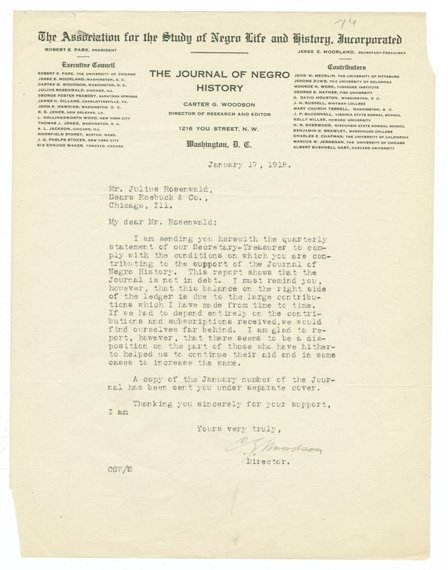Future Intellectuals: Carter G. Woodson (AB and AM 1908)
Carter G. Woodson is often called the "Father of African American History." He spearheaded the 1926 creation by Congress of Negro History Week, which has since grown into Black History Month.
More importantly, Woodson founded several institutions that provided the infrastructure to support the new disciplines of African American history and African American literary criticism. These included two journals, The Journal of Negro History and The Negro History Bulletin, and a research institution, the Association for the Study of Negro Life and History, which established a press to publish new work in African American studies.
Woodson was born in 1875. He took his AB degree at Berea College, the oldest continuously integrated college in the U.S., and received a second AB and a Masters degree in history at the University of Chicago in 1908. Then he earned his PhD in history at Harvard in 1912.
Woodson's AM thesis focused on international relations in Europe in the 19th century. During his time as a student, themes in African American studies were not yet legitimate subjects for doctoral research. But Woodson's journals and the work of the Association would legitimate research themes in African American history so that younger scholars would be able to pursue themes more directly connected to African American culture.
Woodson taught briefly at Howard University (1919-20) but spent most of his career as an independent scholar tending to the journals and association he had founded. He was a tireless fundraiser and advocate for these enterprises and died in 1950.
In September 2008 the University of Chicago opened a charter middle school named in his honor.

Carter G. Woodson, editor
Lancaster, PA: The Association for the Study of Negro Life and History, Inc., 1916
William E. Barton Collection of Lincolniana
Along with journals like Opportunity, founded by University of Chicago alumnus Charles Johnson, and Crisis, founded by W.E.B. DuBois, this journal helped establish the scholarly basis of African American studies.



